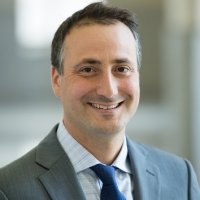New Rules for the Rule of Law in Argentina
The “notebooks” scandal in Argentina has shined a light on widespread corruption among the country’s political and economic elites. It has also brought unflattering scrutiny to Argentina’s criminal justice system, including its federal judiciary. The fallout has shaken confidence, at home and among foreign investors, in the rule of law in Argentina.
But well before the latest bribery scandal, President Mauricio Macri had launched an ambitious campaign to strengthen Argentina’s criminal justice system, aiming for greater efficiency, transparency and credibility. The cornerstone of that effort is a wholesale modernization of Argentina’s penal code, led by a federal judge, Mariano Borinsky, whose recommendations are shaping these historic reforms.
On Tuesday, September 11, we discussed these proposed reforms and the challenges to firmly establishing the rule of law in Argentina. The panel was co-sponsored by the Argentina Project; the Inter-American Dialogue; and The Integrity Forum, an initiative of Exiger.
Exiger is a governance, risk and compliance company delivering actionable advice and tech-enabled solutions to prevent compliance breaches, respond to risk, remediate critical issues and monitor ongoing business activities
The Integrity Forum, an initiative of Exiger, is an ongoing breakfast event dedicated to the mission of enhancing integrity in the public and private spheres. Each Integrity Forum breakfast features distinguished speakers who discuss an integrity-related subject, after which invited guests have the opportunity to ask questions and engage with the speaker and each other. Request an invitation to future events here.
---------------------------------------------------
Selected Quotes
Mariano Borinsky
“It’s important, as a cornerstone in this discussion, that all the crimes which affect not only Argentina in particular, but also the global community, are incorporated in penal legislation. In 100 years, as evidenced in the [existing] penal code, one has never seen terrorism or the financing of terrorists as part of the penal code.”
Daniel R. Alonso
"Here, you have this all-in-one document applying to the provinces, so it’s really a Herculean effort that this commission undertook, and if it passes, it will affect every single aspect of the Argentine criminal justice system.”
“The bribery sections in this law were drafted by people who really, really don’t want corrupt public officials to get away with it. They’re excellent, and I think they close almost every loophole I can think of.”
Claudia Martin
“Unfortunately, this draft code continues to criminalize abortion. It’s true that it contemplates some of the exceptions that were provided in the current code... As Judge Borinsky mentioned, this is a very controversial matter in Argentina, so leaving in the hands of the judge – whether or not a woman should be punished for abortion – is a very dangerous proposition. Then, I want to say that for me, personally, the decriminalization of abortion in Argentina is a debt that all the democratic administrations in Argentina have with women.”
Roberto de Michele
“Why do most of these efforts not achieve the results that are expected? When there’s a reform like this one, you also need a discussion of how to implement it. Who is measuring performance? Are you sure you have the institutional design that is going to be able to apply these regulations? Do you have the means and the resources to conduct complex investigations into financial crimes or into terrorist financing? Do you have the information or the resources to account for crimes that specific groups suffer – for example, women and people who are disadvantaged. Where does that data come from? In our experience, we find that most countries in our region do not have the information that helps you with criminal policy implementation.”
Introduction

Keynote Speaker
Moderator
Panelists

Hosted By

Argentina Project
The Argentina Project is the premier institution for policy-relevant research on politics and economics in Argentina. Read more


Latin America Program
The Wilson Center’s prestigious Latin America Program provides non-partisan expertise to a broad community of decision makers in the United States and Latin America on critical policy issues facing the Hemisphere. The Program provides insightful and actionable research for policymakers, private sector leaders, journalists, and public intellectuals in the United States and Latin America. To bridge the gap between scholarship and policy action, it fosters new inquiry, sponsors high-level public and private meetings among multiple stakeholders, and explores policy options to improve outcomes for citizens throughout the Americas. Drawing on the Wilson Center’s strength as the nation’s key non-partisan policy forum, the Program serves as a trusted source of analysis and a vital point of contact between the worlds of scholarship and action. Read more
